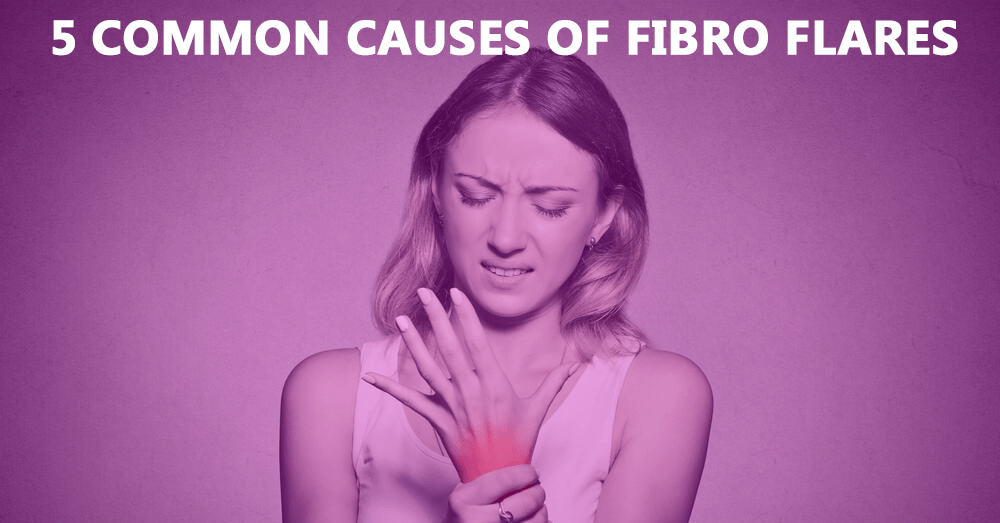If you are struggling with pain, you may be thinking about whether or not you struggle with a disease known as fibromyalgia. So what are the first signs of fibromyalgia?
This disease has a number of different symptoms, and because of this, it’s important for us to try and understand what the first signs of fibromyalgia are before we make a judgment call on whether or not this may be the problem we are having.
In this article, we’re going to explore the most common early symptoms of fibromyalgia.
So What are the First Signs of Fibromyalgia?
There’s a big issue with this question, and the reason is that fibromyalgia is different for every single person that has it. Obviously, there are some similarities, but different people will start to notice the first signs of fibromyalgia in a number of different ways.
It depends on how it manifests in a person’s body, and it depends on how the person takes care of themselves. There are a lot of factors that go into the whole thing, so this question is almost impossible to answer.
That being said, there is one symptom that everyone pretty much has in common. Pain. I know that’s a very general term, but it’s really the only thing that all people with fibromyalgia seem to have in common with one another. The pain can be focused in different places, but most times it is in an area of the body where it would otherwise be unexplained.
It doesn’t make a lot of sense, and it may cause some alarm depending on how badly the pain hurts and how uncomfortable the person is. Obviously, pain can be a trigger for other issues as well, but the pain is almost always involved at the beginning stages of fibromyalgia.
COMMON FIRST SIGNS OF FIBROMYALGIA
That being said, there are some similarities that we can see between cases. Here are some of the most common early symptoms that you will find.
- Pain for more than three months in the 18 tender points
- Allodynia
- Sensitivity to strong scents
- Fibro haze or fibro fog
- Paresthesia
- Increased sweating
First, let’s look at allodynia. You may not think much about rubbing a friend or family member’s shoulders or patting a companion on the back. Anyway, for somebody with allodynia, these basic motions can bring about immense pain. Allodynia is an increased sensitivity to touch, which brings about torment from things that ordinarily would not result in pain. Allodynia can also happen with a lack of rest and increased stress, so you want to make sure that those are not the issue.

Another common early symptom is sensitivity to strong scents. This fibromyalgia symptom is connected to allodynia and happens for a lot of the same reasons. If you are sensitive to light, sound, and smell, you may become irritated or deal with pain. There are a lot of different signals coming into the body, and it takes a lot of energy to figure out what signals are what. Since we have a hard time interpreting signals, our bodies panic and we become sensitive to pretty much everything around us.
“Fibro haze,” which is also referred to as brain drain, is another issue that many people with fibromyalgia may struggle with, and it is often noticed early on. This is an intense fibromyalgia manifestation that leaves numerous individuals in pain and confused.
Fibro haze is an incredibly stressful thing to have to deal with. People who are struggling with this symptom will have a hard time choosing their words, their short-term memory is pretty bad, and they may ramble for extended periods of time. They may call people by the wrong name, they may forget where they are and what they are doing, or they may start to feel panicked because they aren’t really sure what is going on in the world around them.
There really isn’t a reason for fibro haze that has been discovered at this point, but researchers are trying to figure out exactly how they can help to treat this sometimes frightening symptom. Some patients have seen improvement with a significant amount of rest, whereas others have seen it get better as their pain is reduced. It all depends on the person.
Paresthesia is an unexplained feeling of shivering and numbness that individuals with fibromyalgia may encounter. Regularly it’s identified with tension or anxiety over the issue and can be joined by quick, profound relaxing. This, in turn, can prompt acroparesthesia, shivering in the hands and feet from the absence of carbon dioxide.
Considering that stress and anxiety are real players in parasthesia, the anxiety-easing systems proposed for fibromyalgia patients can offer assistance. Activity can likewise assume a part in treatment. Many people who suffer from fibromyalgia struggle with anxiety as well, so this is often seen early on in the diagnosis as well.
The last symptom that you may notice early on in your diagnosis is profuse sweating. For some people, this may be common sense, considering sweating is usually associated with anxiety. Some individuals with fibromyalgia sweat vigorously and may even believe that they have a fever. This is because of what’s called autonomic brokenness inside the hypothalamus, the almond-sized zone in the mind that controls rest and manages sweating and other programmed body capacities.
The autonomic brokenness causes the increment in sweating, which makes it that much more uncomfortable for the person with the disorder. A few drugs and life changes that can keep you cool and dry may help with this fibromyalgia side effect; in other cases, you may have to talk to your doctor about how to relieve the stress from it.
As we stated above, fibromyalgia is different for everyone, which means that everyone will need something different when it comes to treatment. The body may go through some physical changes as a result of how it affects the body as well. By understanding some of the most common early symptoms of the disease, we may be able to start treating it early and help people to find the relief that they are looking for. Knowing the symptoms can help you pinpoint the disorder early on in its cycle.
Have you experienced any of these first signs of fibromyalgia? Let us know in the comments.


I have been diagnosed with fibromyalgia since 45 I am now 72. I fine that a lot of doctors say oh we never gets any worse and I totally disagree. I know with older age we have more aches and pains so to me fibromyalgia does get worse with age.
Does this get in your finger and pin and needle it